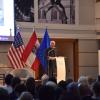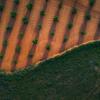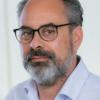
IIASA is proud to announce that its Interim Deputy Director General for Science, Wolfgang Lutz, and IIASA Energy, Climate, and Environment Program Director, Keywan Riahi, have been selected as Fellows of the International Science Council (ISC).
The ISC has announced the appointment of over 100 new ISC Fellows, in recognition of outstanding contributions to promoting science as a global public good. The Fellowship is the highest honor that can be conferred on an individual by the ISC. Together with the 123 individuals that were appointed in 2022, including former IIASA Director General Albert van Jaarsveld, the new ISC Fellows will support the organization’s Council in its mission at a critical moment for science and sustainability as we enter the UN’s International Decade of Sciences for Sustainable Development in 2024.
"The ISC Fellowship recognizes individuals who are ambassadors and advocates working tirelessly for science internationally and for the vital importance of evidence-informed policymaking. ISC Fellows hail from wide-ranging geographies, sectors, disciplines, and career stages, and we look forward to working with them all in multiple capacities in the coming months and years," notes Terrence Forrester, Chair of the Fellowship Council.
Fellows are nominated by ISC Members, existing Fellows, and partners such as the InterAcademy Partnership. With their selection as ISC Fellows, Lutz and Riahi join the ranks of eminent social and natural scientists, engineers, and thought leaders who have made impactful contributions to science and society.
“Systems science empowers us to unravel the complexities of our world and offers holistic solutions that resonate globally. Every individual contribution, no matter how modest, has the potential to catalyze positive change in society. I am honored to contribute to the work of the ISC in driving transformative action towards sustainable development and wellbeing for all as part of this distinguished group," says Lutz.
“As we stand on the threshold of the UN's International Decade of Sciences for Sustainable Development, this recognition underscores the imperative for collective action in addressing the critical challenges of our time. Let us harness the power of science to drive sustainable solutions and pave the way for a resilient and harmonious future for our planet," adds Riahi.
In addition to the 100 scientists added to this distinguished list in 2023, two Honorary Fellows have been appointed – Ambassadors Macharia Kamau and Csaba Kőrösi – joining Mary Robinson, Ismail Serageldin, and Vint Cerf in special recognition of their outstanding support to the ISC. Both ordinary and honorary Fellows provide a critical, diverse mass of special individuals who can supplement the insight, expertise, and perspectives of ISC Member organizations.
Further information:
Find out more about the Fellowship here.
News

26 July 2024
Navigating new horizons to protect human and planetary health

14 June 2024
IIASA Leadership visits Washington DC

05 June 2024

